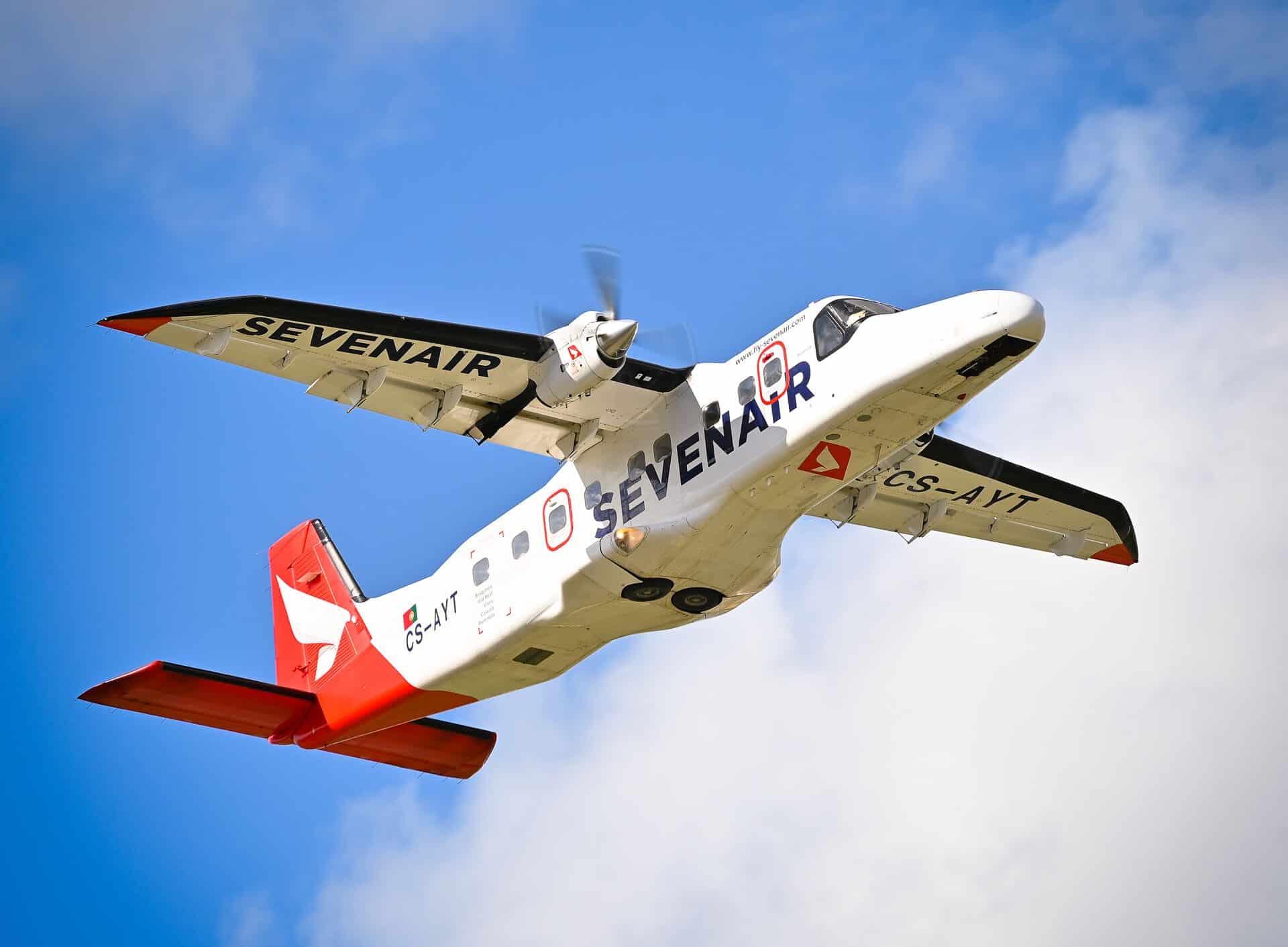Initial service won’t reach the Algarve
Sevenair, the company that operates the air route between Trás-os-Montes and the Algarve, on which flights are to resume today after a hiatus of several months, have justified changes to the timetable with the need to reduce costs and adjust them to the available funds.
“We made changes to adjust (costs), but even so it is very difficult to maintain these funds,” Pedro Leal, chairman of the company’s board of directors, explained on the day the 19-seater aircraft used on the route returned to Bragança municipal aerodrome to prepare for its first flight from the region since the end of September.
“Fuel has increased enormously, as well as aircraft parts”, he added.
On the first flight after the five-month break, at 7.30 this morning, the route is a direct one between the capital of Bragança district and Cascais, in Lisbon district, leaving out Vila Real, Viseu and Portimão – stops previously made on the route.
“We’re going to start with a few passengers,” Leal said. “There are already five on Wednesday, which is not many. But when summer comes, it will be full.”
According to the timetables provided by the air service concessionaire, between February 19 and March 29 there are fewer connections, as on Wednesdays and Thursdays the plane only connects Bragança to Cascais.
After March 31 to October 24, the plane will travel to all destinations and the frequency of flights will also double. On Sundays, there will still be no flights, however.
The new contract signed for the next four years between the government and Sevenair is worth €13.5 million – €3 million more than under the previous concession. But even with this increase, Leal warns the funds may be insufficient.
“I can tell you that in the other four years, audited by the General Inspectorate of Finance, we lost €1.480 million,” he said. “Fuel in the last contract was paid at seventy cents (per litre); we ended up with practically 1.70 euros. Now it’s a bit lower, here in Bragança at 1.30 euros.”
The current price, he stressed, is still too high.
Leal also highlighted the other expenses that are needed to be covered to maintain the air service, in which “everything is increasing” in price.
In order to make up for losses in terms of human resources during the time workers were furloughed and when some of the 100 or so employees opted to take other employment, Leal said that Sevenair will be running courses to train more pilots at its school.
“Of the handling staff here in Bragança, fortunately no one has ‘fled’ – we have the same staff,” he said. “But in other places, like Viseu, some people left. Now we’re going to resume and hire other employees. Let’s get on with life.”
The regional airline’s operations were interrupted on September 30, when the last direct award to Sevenair ended, pending the outcome of the international public tender for a new four-year concession.
It was in that month that the airline announced that flights would stop until it was paid the sum of around €3.8 million owed by the state, as it was in a situation of “cash flow strangulation.” Before that, in February, the number of daily flights had already been reduced.
From the start of the concession until the service was stopped, two direct agreements were made, first with the previous, Socialist government and then with the current right-of-centre coalition government.
The result of the public tender was announced at the end of 2024, with the only competitor being Sevenair, which has been providing the service since 2009. It was selected to continue operating for the next four years.
On February 13, the Ministry of Infrastructure and Housing announced that Portugal’s Court of Auditors had given its prior approval to the concession contract, after further information had been requested by this body.
Lusa contacted the ministry for further clarification, but there has been no reply so far.
LUSA




















